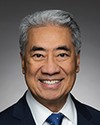I’m the head of the Lost Canadians. I coined the term. I lost my citizenship at age six because I was born in Canada, in wedlock, and not adopted. Had any of those factors been different, I would have remained Canadian. Are you confused? Well, of course, because the laws were and remain a convoluted mess. It took me 47 years to become Canadian again, as I was forced into becoming an immigrant and naturalized citizen.
To be clear, Bill C-3 is not about immigration. It’s the result of a court decision putting fairness into our Citizenship Act, righting historic wrongs and bringing the act into compliance with the charter. Saying that lost Canadians are immigrants is absurd. It’s a citizenship issue, period. To repeat, Bill C-3 is not about immigration.
Bill C-3 fixes the unconstitutionality of the first generation born abroad and, for the first time ever, makes the Citizenship Act charter-compliant. Women will have equal rights going forward and backward. How ironic that the same gender discrimination was in the Indian Act. Bill S-3 fixed that, with retroactive effect going back to 1870. Indigenous women could now confer Indian status but not citizenship, which, of course, begs a constitutional question about unequal rights still embedded in the Citizenship Act. Bill C-3 corrects that injustice.
For reference, because it's applicable, a second Supreme Court ruling, from the U.K., responded, in Advocate General for Scotland v. Romein. It means that no political party here has a choice. It’s a matter of upholding the charter and the rule of law. Years ago, Canadian women who married Americans were stripped of their citizenship—and, hey, what you don’t know about citizenship law can come back to hurt you or a loved one. Canada's very adept at making its own people stateless, with victims often being women and children. Bill C-3 corrects this as well.
Please get past surface reactions about non-mitigating factors like criminal background checks, which, for lost Canadians, was declared unconstitutional in a 1997 Supreme Court ruling: Benner v. Canada. Look also at the December 2007 CIMM committee report, which reads, and I quote:
Background checks are only appropriate for candidates seeking a grant of citizenship as opposed to those for whom citizenship is a birthright [and] this implies that lost Canadians should not be subjected to background checks as a precondition for having their citizenship resumed.
The case is closed on background checks—that is, unless you wish to go against the unanimous Supreme Court ruling, which, then, is a violation of the rule of law. Per the court, you don’t get to pick and choose. Everyone must be entitled to the same rights, and lost Canadians have a right to citizenship, so you, as parliamentarians...it's your job to defend and protect that right. If we must undergo criminal background checks to secure our constitutional right of citizenship, then it must be so for all Canadians. If we must own land or pay taxes, it has to apply to everyone—including newborns.
By conflating the issue with immigration, one, MPs don’t understand the difference, which is frightening because, when I am on an airplane, I expect the pilot to know how to fly and, likewise, I expect MPs to know their portfolio; two, MPs understand but choose to fearmonger and mislead—just look south to see the deterioration of a country when a major political party goes down that path—or three, it’s a combination of one and two, with all scenarios being bad, leaving Canadians, including children, in harm’s way.
Knowledge should win the day, which is impossible by not embracing it. One political party won’t meet with me. My calls go unanswered. When I went to testify years ago, the members controlling the committee went in camera and cancelled the meeting. No lost Canadian testified on a bill about lost Canadians, and before I testified on Bill S-230, I was asked not to divulge the accurate numbers. There’s a pattern here. Also, with my being given just five minutes to testify, well, no wonder we’re at 12 lost Canadian bills and counting. Would you get on a plane with a pilot who had just five minutes' worth of flight instruction?
I’m expecting you to do your job and, really, learn about the issue. Canada unconstitutionally denying Canadians their identity and culture through citizenship and violating the UN conventions on the rights of the child, the reduction of statelessness and the elimination of all forms of discrimination against women, is unconscionable.
The Bloc certainly understands and defends culture and identity.
Bill C-3 is the best remedy, as is.












